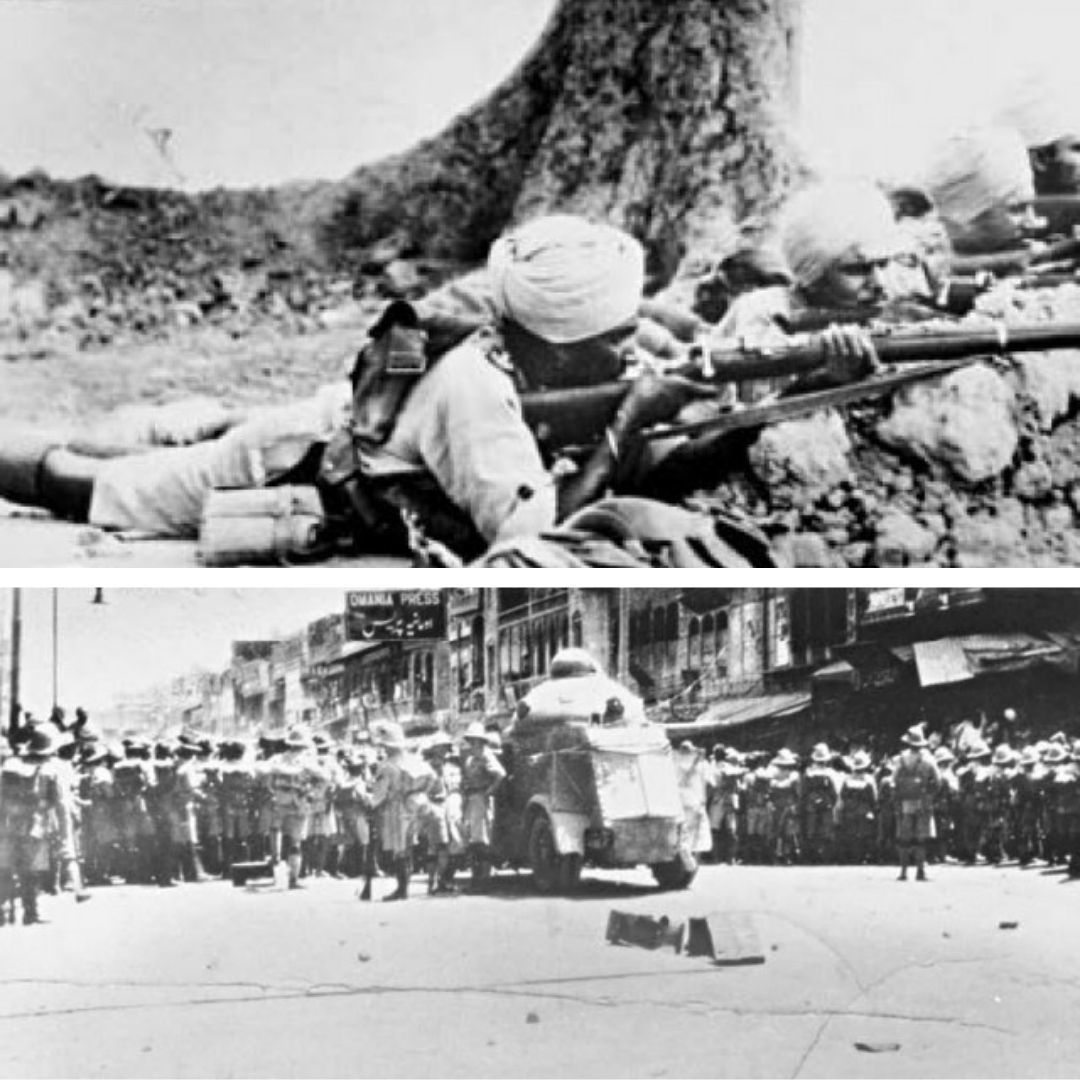
Image Credits: Wikipedia
Remembering Qissa Khwani Massacre, One Of The Defining Movements Of India's Freedom Struggle
Writer: Tashafi Nazir
For most people, journalism sounds hectic and chaotic. For her, it's a passion she has been chasing for years. With an extensive media background, Tashafi believes in putting efforts on presenting a simple incident in the most interesting way.
India, 12 March 2022 10:31 AM GMT
Editor : Snehadri Sarkar |
While he is a massive sports fanatic, his interest also lies in mainstream news and nitpicking trending and less talked about everyday issues.
Creatives : Tashafi Nazir
For most people, journalism sounds hectic and chaotic. For her, it's a passion she has been chasing for years. With an extensive media background, Tashafi believes in putting efforts on presenting a simple incident in the most interesting way.
Qissa Khwani massacre was the first significant confrontation between the British Indian Army and demonstrators in Peshawar, belonging to Pashtun freedom fighter Abdul Ghaffar Khan's non-violent 'Khudai Khidmatgar' (servants of God) movement against the British colonial government.
The Qissa Khwani massacre in Peshawar, British India (present-day Pakistan), on April 23, 1930, was one of the turning points of the independence movement in British India.
It was the first significant confrontation between the British Indian Army and demonstrators in the city, belonging to Pashtun freedom fighter Abdul Ghaffar Khan's non-violent Khudai Khidmatgar (servants of God) movement against the British colonial government.
Why Did Qissa Khwani Bazaar Massacre Happen?
British police arrested Abdul Ghaffar Khan and other leaders of the Khudai Khidmatgar on April 23, 1930, after the former gave a speech at a gathering in the town of Utmanzai in the North-West Frontier Province. A respected leader is known for his non-violent methods, Khan's arrest spurred protests in the neighbouring cities, including Peshawar.
Protests spilt into the Qissa Khwani Bazaar in Peshawar on the day of Khan's arrest. British troops entered the market area to disperse crowds that had refused to leave. British army vehicles drove into the public in retaliation, killing several protesters and bystanders. Later, they opened fire on unarmed protestors, killing even more people, according to The Indian Express.
According to historical records, the British attempted to deploy the Garhwal Regiment against the civilians in the marketplace, but two platoons of this respected regiment refused to shoot at unarmed protesters. British officials court-martialled the platoon members with up to eight years of imprisonment in response.
Aftermath Of The Massacre
In Peshawar and surrounding areas, the Khudai Khidmatgar experienced some of the most extreme crackdowns against India's freedom struggle. Later, Ghaffar Khan wrote that this was because the British government thought a non-violent Pashtun was even more dangerous than a violent one, claiming that this led them to repeatedly provoke the movement into becoming fierce, with little effect.
The massacre created various instances of unrest throughout British India. This resulted in King George VI (Emperor of India) launching a legal investigation. The British Commission brought the case forward to Chief Justice Naimatullah Chaudhry, a distinguished Judge of the Lucknow protectorate.
Subsequently, King George VI knighted Naimatullah Chaudhry, who surveyed the area of massacre personally and published a 200-page report criticising the actions of the British Indian Army.
The Khudai Khidtmatgar opposed the partition of India, a stance that many interpreted as the movement not being in favour of creating the independent country of Pakistan. After 1947, the Khudai Khidmatgar slowly found their political influence declining to such an extent that the movement and the massacre 90 years ago in the Qissa Khwani Bazaar was wiped out from collective memory.
Also Read: 1993 Mumbai Blasts: 12 Horrifying Explosions That Changed India's Financial Capital Forever
 All section
All section














